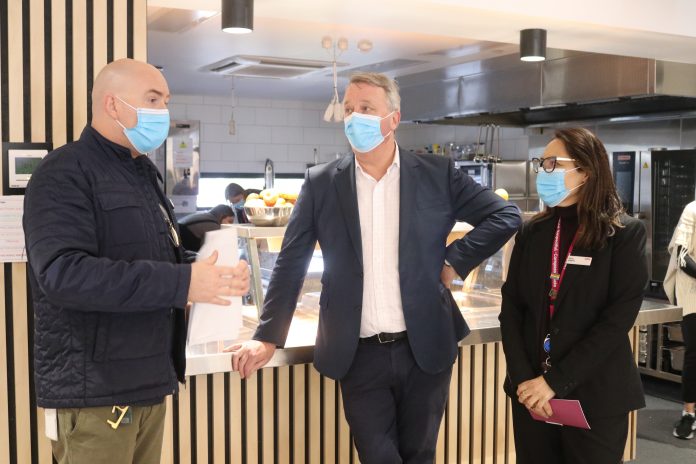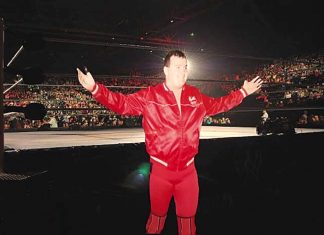
Michelle Slater
A new 20-bed drug and alcohol residential rehab centre was officially opened in Traralgon last week to provide care for young people aged between 16 and 21.
The new centre is being run by Uniting Alcohol and Drug Services in partnership with Gippsland and East Gippsland Aboriginal Cooperative.
It began operating a few months ago and currently has eight people using the service, and will operate at full capacity once further COVID restrictions are eased.
The new facility is part of a $52.1 million state government investment to build three residential rehabilitation facilities in regional Victoria, including Wangaratta and Corio.
Health Minister Martin Foley opened the new centre on Northern Avenue, stating it was part of providing a suite of services in regional Victoria.
“Addiction has a devastating impact on local communities, particularly in regional Victoria,” Mr Foley said
“This new facility in Traralgon will create lasting change in young people’s lives and help them stay connected to their community.”
The centre has been designed to provide a structured therapeutic and home-like environment for young people.
It is providing 24-hour care for people who have been through withdrawal or stabilisation, to support them back into the community and access educational and vocational training.
It features a mix of single and double bedrooms, shared bathrooms, administration and consulting facilities, lounge and dining areas and indoor and outdoor activity areas.
The service will admit people from across the state, and about half of the beds for people from Gippsland, with referrals from community, health and counselling services and the justice system.
Uniting executive general manger Sylvia Alberti pointed to the success of one graduate who had completed his studies and is undertaking work experience after completing his rehabilitation.
Ms Alberti said there was about a four-month wait to access the service, depending on the need of the individual, but so far the centre was making a “massive impact” to young lives.
“Every life you work with, every single person you work with you make an impact. Not just for that individual, but in that family, their friends and community,” Ms Alberti said.
“We work with that individual to understand their immediate needs, how do we respond to these needs? Sometimes, this requires support prior to entry, this can be varied.”











